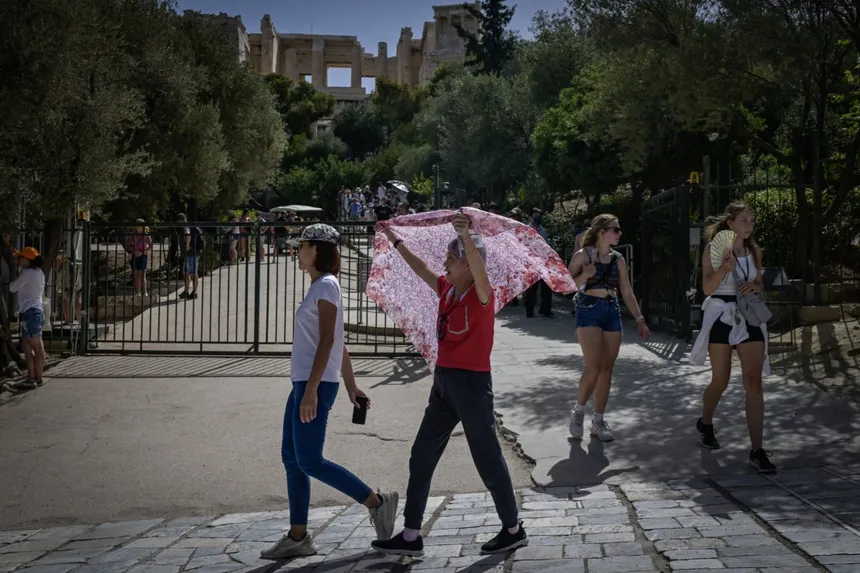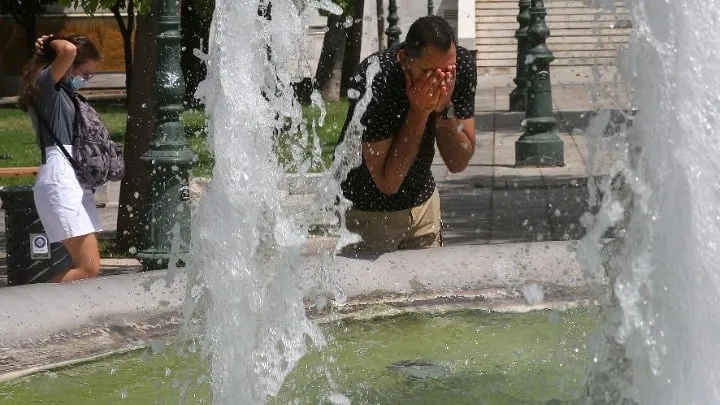The Acropolis, Greece’s most popular tourist destination, was forced to close its gates to the public during the scorching hot hours of Wednesday due to the season’s earliest-ever heatwave. The sweltering temperatures, expected to reach a staggering 43C (109F) on Wednesday and Thursday, prompted the culture ministry to take drastic measures. The iconic archaeological site in Athens would remain closed from midday to 5pm (09.00 to 14.00 GMT) as the heatwave reached its peak. Meteorologists have noted that this is the earliest heatwave in recorded history, shattering the previous records.
Panos Giannopoulos, a state TV meteorologist, pointed out that in the 20th century, heatwaves never occurred before June 19th. However, with the onset of climate change, the phenomenon has become more frequent, with several heatwaves occurring in the 21st century before June 15th. Giannopoulos warned that this trend is expected to continue, making the heatwave response more challenging.
As the mercury soared, tourists were ushered out of the ancient site amidst the scorching heat, seeking refuge in nearby cafes and shops. The climate crisis and civil protection ministry issued warnings of a very high risk of fires in the Attica region around Athens, prompting schools to shut down in several regions, including the capital.
Labour ministry advisors recommended that public-sector employees work from home, while the ministry ordered a halt to outdoor work, including food delivery, from midday to 5pm on Thursday. The measures were deemed necessary to mitigate the effects of the heatwave, which has made daily life unbearable for many.

Fotis Pappous, a 46-year-old electrician, expressed his concerns about working in the blistering heat. He had started his day at 6am, as ordered by his employer, to avoid the worst of the temperatures. However, not everyone had the luxury of flexible working hours. Kebab store owner Elisavet Robou, in the bustling Plaka tourist district, had no choice but to continue serving customers. She relied on air conditioning and fans to keep her staff cool during the sweltering heat.
The heatwave has also disrupted daily life in Thessaloniki, Greece’s second city. Schoolteachers and pupils alike struggled to cope with the lack of air conditioning in classrooms. “Exams should not have been held under these conditions,” said Yiannis Theodoridis, a 17-year-old pupil.
The Acropolis, which attracted a record 4 million visitors last year, was previously forced to close in July due to an unprecedented two-week heatwave. The heatwave’s early arrival has already taken its toll on the popular tourist destination, forcing authorities to implement drastic measures to ensure the safety of visitors and staff.

